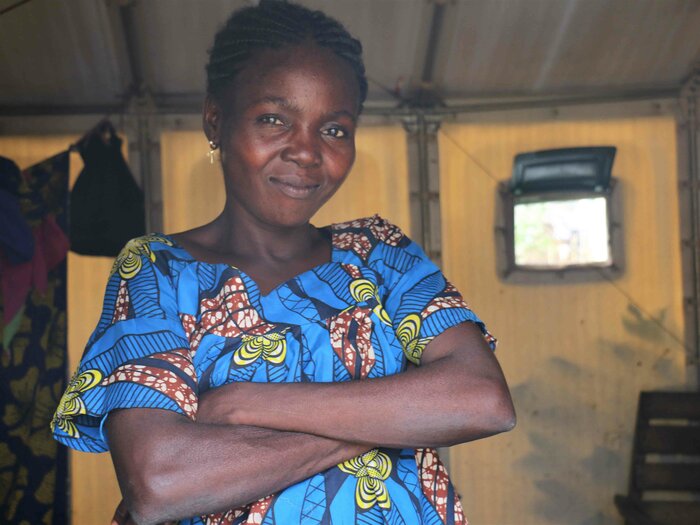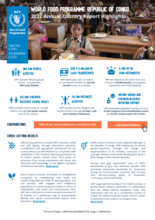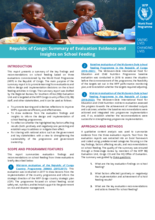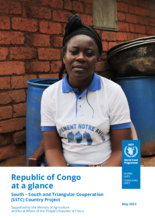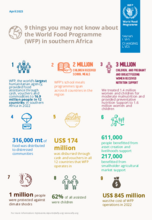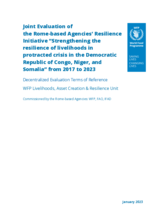Congo
- 52.5%
- of people live below the poverty line
- 32%
- of people live in rural areas
- 5.5 million
- population
The Republic of Congo is a resource-rich, middle-income country that has the potential to achieve Sustainable Development Goal 2 and reach Zero Hunger and improved nutrition by 2030.
The country, however, continues to face high levels of poverty and inequality, recurring localized conflict and regional insecurity. Combined, these factors are increasing the levels of malnutrition, food insecurity and displacement as families leave their homes in search of safety, incomes and better futures.
More than 90 percent of arable land remains uncultivated, and agriculture is largely limited to subsistence crops, mainly cassava, bananas and peanuts. Domestic food production covers only 30 percent of the country’s needs, the Congo relies extensively on food imports from overseas. WFP estimates that 15 percent of households report poor or limited food consumption, with peaks of 30 percent in rural areas.
What the World Food Programme is doing in Congo
-
Crisis response
-
WFP provides food or cash assistance and nutrition support to 176,000 vulnerable people, including refugees, asylum seekers, returnees, flood-affected populations and people living in urban areas who have been impacted by the economic consequences of COVID-19. Where appropriate, the assistance is combined with the creation or rehabilitation of assets which enhance the resilience of communities, families and individuals to shocks.
-
School meals
-
WFP provides daily hot school meals to 166,000 children in areas that are most affected by malnutrition. Food is increasingly sourced directly from local farmers, with a special focus on schools in rural areas. WFP assists around 4,500 indigenous children enrolled in ‘ORA’ schools in the remote Likouala and Sangha provinces to give these children the opportunity to enter the school system.
-
Building of national capacities
-
WFP actively supports the Government in the design and implementation of the National School Feeding Policy and works with the Government and fellow UN Agencies to ensure social protection interventions are effective, equitable and inclusive of the most marginalised populations such as indigenous peoples. WFP strengthens institutional knowledge on climate change adaptation and supports the Government in developing targeted climate services.
-
Support for smallholder farmers
-
In 2021, WFP provided 1,138 smallholder farmers with technical support, training, and knowledge to increase their food production, storage and transport to markets. WFP works with women's cooperatives to empower rural women and helps smallholder farmers adapt to climate change by strengthening climate-resilient rural livelihoods.
-
Logistics support
-
Building on its recognized supply chain expertise and infrastructure in Congo, WFP provides UN agencies, the Government, and other partners with on-demand supply chain services. This includes the procurement and management of vehicles, transportation of staff, distribution of non-food-items and warehousing, so they can assist vulnerable families. WFP also supports humanitarians to travel via the United Nations Humanitarian Air Services (UNHAS).
Congo news releases
Go to pagePartners and donors
Find out more about the state of food security in Congo
Visit the food security analysis pageOperations in Congo
Contacts
Office
Avenue du Général de Gaulle BP 1036. Brazzaville, Republic of Congo
Brazzaville
Congo - Brazzaville

